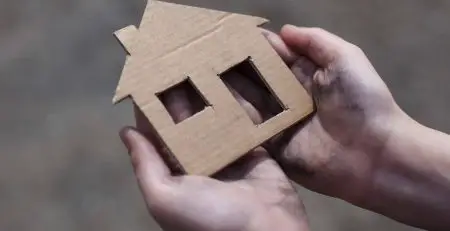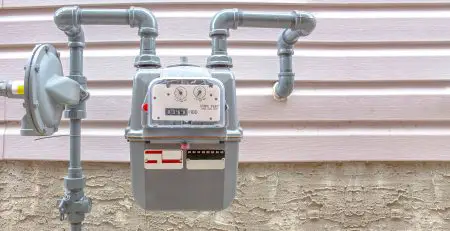We all dream of the day someone hands us the key to our own homes. For older generations, it was a dream that was easier to achieve. But for the current generation, the economy has been less-than-helpful when it comes to buying houses. Even renting a decent place has been getting more and more difficult every day. While salaries on average have been getting higher, inflation has been absolutely skyrocketing as of late. And it’s not just housing that’s been increasing in price, but pretty much everything else. Education is getting more expensive, as well as everyday expenses.
Another challenge the average Joe has also been facing is the ability to get sizable loans from different financial institutions. Thankfully, we’re not completely on our own. There are different federal programs out there to soften the financial blow of paying for decent housing. These programs include rental assistance programs, also programs that make buying a new house a less terrifying decision to make.
One thing hasn’t changed over time, big financial decisions become easier to take with better planning. And, that’s what we’re here to discuss. We’re going to look at how you manage your finances while you’re paying off your mortgage. Hopefully, the tips we’re about to discuss can help take the load off your shoulder when it comes to staying financially stable while paying off your mortgage.
Why You Should Be Looking Into Buying Your Own Home
There are several ways to look at this thought. Some might choose to look at it from the traditional perspective. To some, it’s one of the most important steps towards achieving the traditional idea of success. Other steps may include marriage, having kids, and eventually running your own business. Others may see that buying a house is a safe financial investment. Obviously, buying a house, keeping it for a while then reselling it will almost always make you a decent profit. And, recently, investing a large sum of money into a house has been proving to be a fantastic investment.
The truth to the matter is that all of the reasons mentioned above are good enough to buy a house. One must also factor in all the advantages that come with owning your own place. On a personal level, having your own place takes housing off your mind and lets you focus on other steps to move your life forward. But on the family level, having your own house can have such a strong impact on everyone living in it. When it comes to the adults of the house, buying a house together can be significantly easier than if done separately. As for the kids, having a stable place to call home can have significant psychological and developmental benefits.
Now Onto How You Can Manage Your Mortgage
Some of the following tips may seem obvious to you at first. But, if you take the time to really think about them, strategize and implement them, they can impact your financial situation significantly. So, let’s dive right in, shall we?
Budgets: More Planning = Fewer Risks
It should feel pretty good to have enough money (technically) to buy a house. Realistically, that money is not yours, at least not yet. If anything, such loans are referred to as “liabilities” in accounting books. That means you borrowed this money, now you should focus on paying it back. Now, with a debt that big, you need to know how you’ll be paying it back. You’ll also need to know how long it will take you to get rid of the debt.
To get a general idea about your finances, you need to look into what you own and what you owe. More importantly, you need to know how much you have coming in every month, and how much you spend. And that’s where budgeting starts.
None of us want to let go of any luxuries that we’re already used to. But listen, you just bought a house, prioritize. You’ll need to create a breakdown of what you spend on a monthly basis. Obviously, there’s necessary stuff, including your mortgage payments, food, school, transportation and such. But if you look deeply into your spending, you’ll find a few things that you might be able to let off. (We’re looking at you Amazon Prime subscriptions and fancy gym memberships).
Save Up Whenever You Can
This is one of those tips that seem obvious at first. It also sounds challenging to think of saving up while paying off your mortgage. We’re just pointing out that paying off a debt does not mean other debts will not come by. One of the issues that come with living in the US is the high cost of very basic things such as healthcare and education. The idea of saving up while paying off your mortgage is to avoid having any other huge debts risk your housing situation.
A part of the aforementioned budget is looking at where you can cut some costs and save a few pennies here and there. One thing’s for certain, your expenses won’t be exactly the same every month. In some months, you might use the AC, so your electricity bill might be higher. Or it might rain a few times, causing you to Uber to a few places. So, don’t worry about maintaining a certain amount of money to save each month. It’s important to save what you can to avoid hitting any snags when paying off your mortgage.
Paying More Towards Your Mortgage Means You Spend Less Time In Debt
This option is clearly only meant for those who can pull it off. You definitely shouldn’t put yourself in financial strain just to shave off a few months or years off your debt period. If you’re doing well paying off your mortgage at a steady rate, while maintaining an acceptable financial situation, then just keep your current course.
There’s an important thing to keep in mind should you ever decide to make bigger payments towards your mortgage. Not all mortgage agreements will allow you to make extra payments for free. Different lenders will have different terms for a mortgage loan. In a general sense, variable rate loans should allow you to make extra payments free of charge. However, fixed-rate loans might be extra iffy about it.
Pick Your Financial Battles
Mortgage loans usually result in significantly-sized debts. If you have a mortgage to pay off, you probably have quite a bit of money to pay back to your lender. At the same time, you have a new house and you probably want to furnish, paint and fit it with all new stuff. But don’t lose your financial restraint just yet. As we mentioned above, you have other stuff to save up for as well.
So, when it comes to spending money on your new house, focus on the necessary stuff. Make sure the flooring, plumbing, electricity and foundation are all good before considering spending money on a new Lazyboy chair. Making wise decisions with your spending and choosing when & why to get another loan will directly impact your ability to pay back off. mortgage.
How Do I Even Get A Mortgage?
This question is pretty big and deserves its own article(s). However, let’s take a quick look at what you should keep in mind when applying for a mortgage. We’ll also mention a federal program that is put in place to make the process a little easier.
Let’s Start With The Basic Documents You Need To Apply For A Mortgage
Different mortgage loans, from different financial institutions, will have different requirements. But, after all, it is a loan. That means whoever will end up giving you the money needs to make sure you can pay it back. So here’s a shortlist of the most basic documents you’ll need when applying for any mortgage:
- Copies of personal identity documents (Social Security Number, Passport..etc)
- For non-citizens, you’ll need proof of legal residence in the country.
- Any documents to prove that you’re creditworthy (credit check, bank statements, proof of income, tax returns from the last 3 years, or a letter from your company)
- Proof that you can afford to pay back the loan (individual or household cash flow statements, bank statements that cover the required amount, and/or utility bills)
Your chances to get approved for a mortgage will heavily depend on your ability to afford to pay it back. You should aim to prove that your total debt doesn’t exceed 35% of your income, in most cases. Also, if you haven’t lived in the US for a while, you’ll need to provide an international credit check to check for your income wherever you lived before.
The ABC’s Of Buying A House Through A Mortgage
As we mentioned earlier, different mortgage applications might vary in requirements and results. However, here’s the cookie-cutter process of buying your new home using a mortgage.
- First, you’ll need to decide if you want to explore the mortgage situation on your own, or just hire a broker.
- After exploring the vast world of mortgages, you should choose the program that works best for you
- When decided, you’ll need to hand in the documents mentioned above, as well as any others your lender may request
- Once you get pre-approved for a mortgage, you should start looking for houses
- You should definitely only look into houses that fit within your budget, to avoid wasting time, energy, and potential opportunities
- Once you find a house or a few houses that work for you, request an inspection. You should really know all ins and outs regarding any house you intend on buying
- Let’s say you’ve decided on a house and got it inspected. Now, you should place your deposit to make sure no one swoops in and takes it away from you.
- If all the steps mentioned above go smoothly, that’s it! You should by then be a homeowner and also, you’d have a mortgage to pay.
I’m Having Trouble Getting Approved For A Mortgage. How Can The Government Help Me?
If you live in the US and you’re planning on buying a house, you’ll most probably need a mortgage to pay for the house. Few lucky folks out there have the cash to pay for the whole thing in full. However, many folks out there struggle to get approved for a mortgage. The main reason behind getting rejected is usually based on credit score. Your credit score is basically your financial print that records all debts, purchases, any other major financial transactions.
Now, there’s a federal housing assistance program called an FHA Loan. FHA stands for Federal Housing Administration. It’s basically a department within the federal government that focuses on providing housing for Americans. Now that we’re done with introductions, let’s talk about that loan.
So, the guys at FHA created this loan program that aims to help low- and moderate-income folks in the US buy their own homes. As the issue with applying for mortgages is usually revolving around credit scores, that’s exactly what this program aims to help out with.
Borrowers can have their mortgage loans ensured by the government through the FHA program. In simple words, the government can be your guarantor when you’re applying for mortgages from private financial institutions, such as banks.
So, if you have a credit score of 580 or above, you can get loans up to 96.5% of the value of the house you intend on buying. If your credit score is between 500 and 579, you can get 90%. Regardless, this is a great way to get your loan and have a small portion to pay as a down payment.
How Can I Qualify For FHA Loans?
To get your started, we recommend visiting the page created by the Department of Housing and Urban Assistance. You should be able to get all the information you need there. But, in a general sense, FHA will focus on the following points when considering your FHA Loan application:
- Financial History
- Employment History
- Credit Score
- Debt-to-Income Ratio
- Plans That You Have For Property











